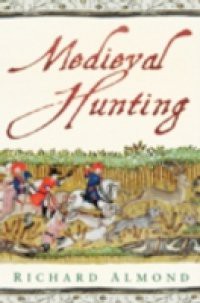Hunting was a major economic and leisure activity throughout the European Middle Ages, and while aristocratic practices have featured in studies of romantic and narrative literature, hunting in its wider sense, across the social spectrum with attendant male and female roles, has larged been ignored by modern medieval historians. Richard Almond's study brings vividly to life the universality and centrality of hunting to medieval societies, both as an economic necessity and as an expression of medieval humanity's amost atavistic sense of oneness with nature. Medieval Hunting dispels some of the myths and misunderstandings about hunting, including the persistent view that it was exclusively an aristocratic pursuit and a male one at that. Using a wide variety of contemporary textual and art historical evidence, Richard Almond demonstrates convincingly that hunting, including fishing and all manner of poaching, was enjoyed by all classes, and by women as well as men.

